Are German Shepherds attached to one person?
Hello, dog lovers today I will explain in detail about whether Are German Shepherds loyal to one person.
I am Dr Arif Aziz, in this blog, I explore this interesting question to uncover the truth about the loyalty of German Shepherds.
German Shepherds are renowned for their loyalty, intelligence, and versatility, making them one of the most beloved dog breeds worldwide. There’s a common belief that German Shepherds bond closely with just one person, but is this truly the case? Let’s delve
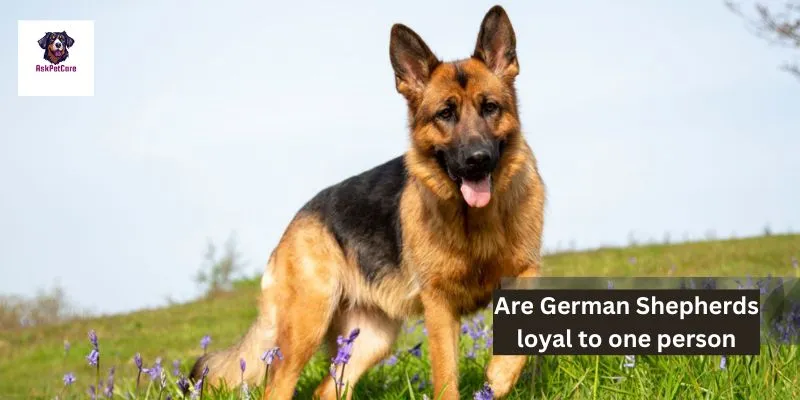
A. Brief Overview of German Shepherds as a Popular Dog Breed:
German Shepherds are big, strong dogs that many people love. They’re famous for being smart, brave, and great at many jobs, like helping police officers or being loyal family pets.
- Introduction to the Concept of Loyalty in Dogs:
Loyalty is when a dog loves and sticks by someone or a group of people. It’s like having a best friend who always has your back. Dogs are known for being loyal creatures, often forming strong bonds with their owners or families. They show this loyalty through actions like following you around, protecting you, and just wanting to be near you all the time. Loyalty is a special and wonderful trait that makes dogs such beloved companions.
II. Understanding the Loyalty Trait in Dogs:
- What does loyalty mean in the context of canine behavior?
Loyalty for dogs is like having a best friend who always cares about you. It means they stick by your side, love you, and want to protect you. Dogs show loyalty by being happy to see you, listening to you, and staying close to you. It’s a special bond between dogs and their owners or families.
- Factors influencing a dog’s loyalty
Lots of things can affect how loyal a dog is. One big factor is how they’re treated by their owners. If a dog is treated with love, kindness, and care, they’re more likely to be loyal. Training and spending time with them also play a big role. Dogs like feeling safe and loved, so if they’re treated well, they’ll usually be loyal. Sometimes a dog’s breed or personality can also affect how loyal they are, but mostly it’s about how they’re treated and cared for by their humans.
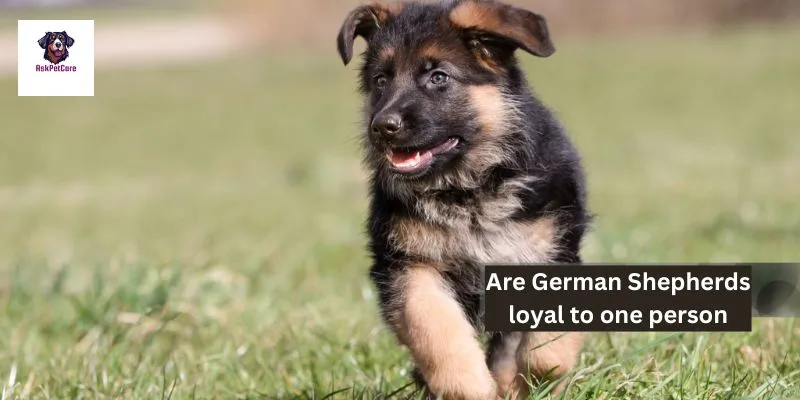
5 Factors influencing a dog’s loyalty:
- Treatment and Care: How the dog is treated by their owners greatly influences their loyalty. Dogs who are treated with love, kindness, and care are more likely to develop strong bonds with their owners.
- Training and Socialization: Proper training and socialization help dogs understand how to interact with people and other animals. Positive experiences during training and socialization can foster trust and loyalty towards their owners.
- Consistency: Dogs thrive on routine and consistency. Consistent care, feeding schedules, and regular exercise help establish a sense of security and trust, leading to greater loyalty.
- Quality Time Together: Spending quality time with your dog strengthens the bond between you. Activities such as playing, walking, and cuddling provide opportunities for bonding and reinforce the dog’s loyalty to their owner.
- Genetics and Breed: While individual temperament plays a significant role, certain breeds may have predispositions towards loyalty. However, regardless of breed, a dog’s loyalty is primarily shaped by their upbringing and experiences with their owners.
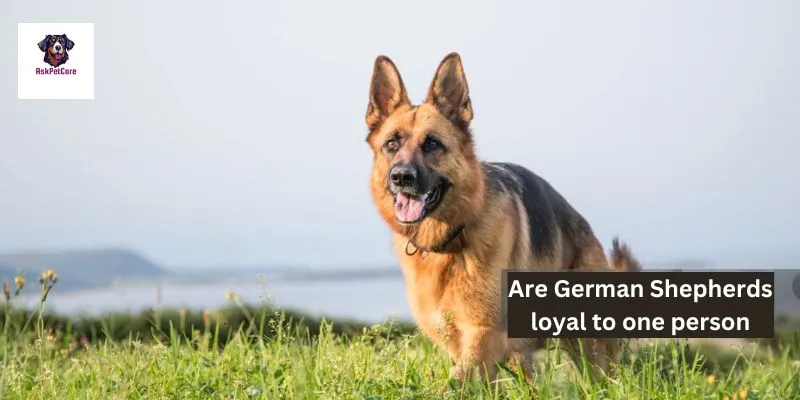
My other related topics:
german-shepherd-guarding-instinct-top-10-reasons:
tips-for-socializing-your-german-shepherd-puppy:
III. Debunking the Myth: Are German Shepherds Loyal to One Person?
- Exploring the Reputation of German Shepherds as Loyal Companions:
German Shepherds are often seen as very loyal dogs. People think they’re super loyal because they’re used as police dogs, service dogs, and loyal family pets. They’re known for being brave, smart, and always ready to protect their owners.
- Examining Scientific Studies and Expert Opinions on Canine Loyalty:
Some scientists and experts have studied how loyal dogs are. They found that dogs can be loyal to more than one person or even a whole family. It’s not just about being loyal to one person. Dogs can have strong bonds with many people they spend time with and care about.
- Dispelling Common Misconceptions about Breed-Specific Loyalty:
People sometimes think certain dog breeds are only loyal to one person, but that’s not entirely true. While some breeds may show more loyalty to their primary caregiver, like German Shepherds, it doesn’t mean they can’t bond with others. It’s more about how they’re treated and cared for than their breed. So, German Shepherds can be loyal to many people, not just one.
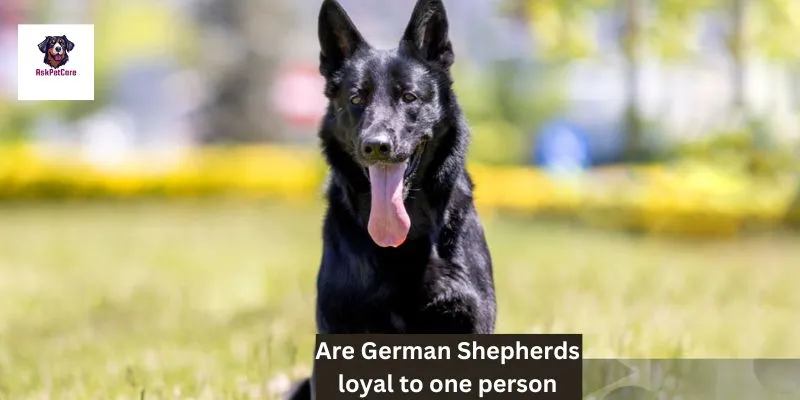
IV. The Reality: German Shepherd Loyalty Explained:
- Highlighting the Breed’s Innate Traits that Contribute to Loyalty:
German Shepherds have some special qualities that make them naturally loyal. They’re known for being smart, brave, and protective, which helps them form strong bonds with their owners. Their loyalty comes from their instincts to protect and be close to their family members.
- Discussing the Importance of Early Socialization and Training:
When German Shepherds are young puppies, it’s important to teach them how to behave around people and other dogs. This is called socialization and training. It helps them learn to trust and feel comfortable in different situations. By starting early and teaching them good manners, they grow up to be even more loyal and well-behaved companions.
- Real-life Stories and Examples of German Shepherds Demonstrating Loyalty to Multiple Family Members:
There are many stories of German Shepherds showing loyalty to everyone in their family, not just one person. For example, they might protect the kids when they play outside or cuddle up with different family members when they watch TV. These actions show how German Shepherds can love and be loyal to everyone in their family, not just one person.
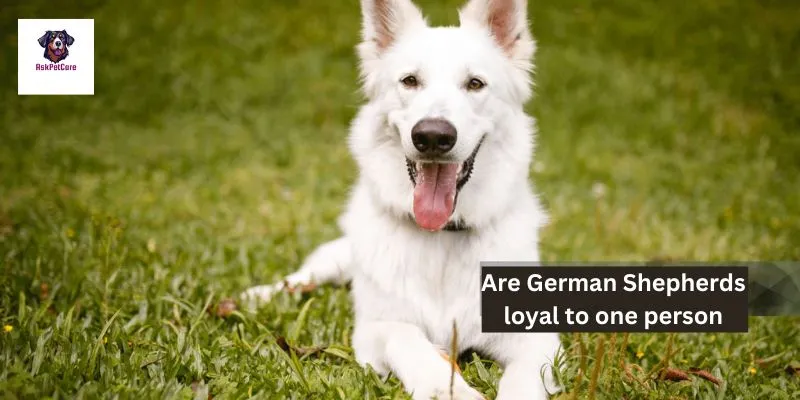
V. Factors Influencing Individual Loyalty in German Shepherds:
- Bonding Experiences and Socialization During Puppyhood:
When German Shepherds are little puppies, they learn how to trust and love people by spending time with them. This is called bonding. It’s important for puppies to have good experiences with different people and animals when they’re young. This helps them feel safe and happy around others when they grow up.
- Role of Genetics and Breeding History:
Genetics is like a set of instructions that dogs get from their parents. Some German Shepherds are born with traits that make them naturally loyal, like being brave or smart. Breeding history, which is about the family tree of a dog, also plays a part. If a dog’s parents were loyal and well-behaved, the puppy might be too.
- Impact of the Dog’s Environment and Living Situation:
Where a German Shepherd lives and how they’re treated can affect how loyal they are. If they live in a loving home where they feel safe and cared for, they’re more likely to be loyal. But if they’re mistreated or don’t feel safe, they might not be as loyal. So, a happy and loving environment helps German Shepherds become loyal and loving companions.

VI. Tips for Fostering Loyalty in Your German Shepherd:
Building Trust Through Positive Reinforcement Training Methods:
Positive reinforcement means rewarding your German Shepherd when they do something good. It could be giving them treats, praise, or playing with them. When you use positive methods to teach them, they learn to trust you more and feel happy to be around you.
Spending Quality Time Together and Engaging in Bonding Activities:
Just like people, dogs love spending time with their loved ones. Doing things together like playing games, going for walks, or cuddling on the couch strengthens the bond between you and your German Shepherd. They’ll see you as a friend and want to be with you even more.
Creating a Secure and Stimulating Environment for Your Dog:
A secure environment means your German Shepherd feels safe and comfortable in their home. Make sure they have a cozy bed, toys to play with, and a quiet place to rest. Also, give them plenty of mental and physical exercise to keep their minds and bodies active. When they feel happy and stimulated, they’ll be more loyal and content.
Establishing Clear Communication and Consistency:
Dogs understand better when you’re consistent with your commands and expectations. Use the same words and gestures every time you want them to do something. This helps them know what you want and builds trust in your relationship.
Providing Proper Nutrition and Health Care:
A healthy German Shepherd is a happy one. Make sure to feed your dog a balanced diet and keep up with their veterinary check-ups. When they feel good physically, they’re more likely to be happy and loyal companions.
Avoiding Punishment and Harsh Training Methods:
Using punishment or yelling can make your German Shepherd scared and confused. Instead, focus on positive reinforcement to encourage good behavior. This builds trust and strengthens your bond without causing stress or fear.
Allowing for Independence and Individuality:
While it’s important to spend time together, it’s also essential to give your German Shepherd space to be themselves. Let them explore and make choices on their own. This helps them feel respected and valued, which in turn fosters loyalty.
Patience and Understanding:
Building loyalty takes time and patience. Understand that every dog is different, and it might take longer for some to develop trust and loyalty. Be patient, show them love, and they’ll reward you with unwavering loyalty in return.
Here’s the information presented in a simple table format:
| Tips for Fostering Loyalty in Your German Shepherd | Description |
| Building Trust Through Positive Reinforcement Training Methods | Use rewards like treats and praise to teach your German Shepherd good behavior, fostering trust and a positive bond. |
| Spending Quality Time Together and Engaging in Bonding Activities | Participate in activities like playing games, going for walks, or cuddling to strengthen your bond with your German Shepherd. |
| Creating a Secure and Stimulating Environment for Your Dog | Provide a comfortable and stimulating home environment with a cozy bed, toys, and mental/physical exercise to keep your German Shepherd happy and loyal. |
| Establishing Clear Communication and Consistency | Use consistent commands and expectations to communicate effectively with your German Shepherd, building trust and understanding. |
| Providing Proper Nutrition and Health Care | Ensure your German Shepherd’s health by feeding them a balanced diet and scheduling regular veterinary check-ups, promoting overall well-being and loyalty. |
| Avoiding Punishment and Harsh Training Methods | Avoid punishment or yelling and focus on positive reinforcement to encourage good behavior, preventing fear and building trust. |
| Allowing for Independence and Individuality | Respect your German Shepherd’s need for independence and let them make choices, fostering a sense of autonomy and loyalty. |
| Patience and Understanding | Be patient and understanding, as building loyalty takes time and varies for each dog. Show love and care consistently to strengthen the bond. |
VII. Recognizing Signs of Loyalty in Your German Shepherd:
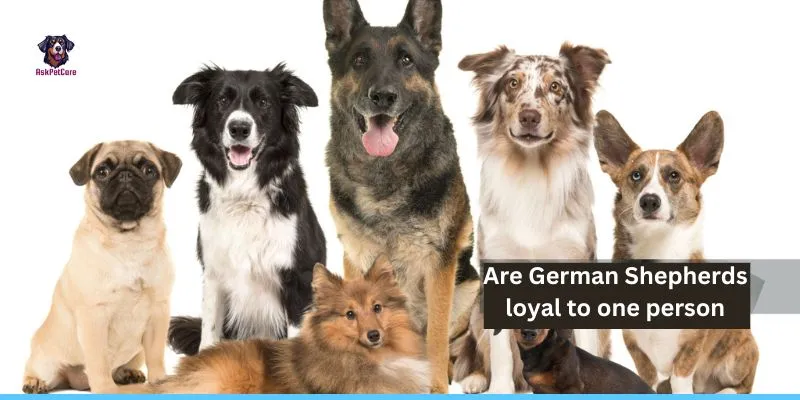
- Behavioral Cues Indicating Strong Attachment and Loyalty:
Here are ten signs of loyalty in your German Shepherd:
- Follows You Everywhere: Your German Shepherd likes to be close to you and follows you around the house, always wanting to be near you.
- Protective Behavior: They display protective instincts, such as barking or standing guard when they sense a potential threat to you or your family.
- Excitement When You Return Home: Your dog greets you with enthusiasm, wagging their tail, jumping up, and showering you with affection when you come home.
- Cuddling and Leaning: They lean against you or snuggle up to you, seeking comfort and closeness as a sign of their loyalty and affection.
- Loyal Obedience: Your German Shepherd listens to your commands and obeys them willingly, showing their respect and loyalty towards you as their leader.
- Protects Family Members: They exhibit protective behavior not just towards you but also towards other family members, showing their loyalty and devotion to the entire household.
- Alertness: Your German Shepherd is always alert and vigilant, keeping an eye out for any potential dangers or intruders to protect you and your home.
- Desire to Please You: They strive to please you and make you happy, eagerly responding to your praise and approval with joy and enthusiasm.
- Sensitive to Your Emotions: Your dog can sense your emotions and react accordingly, offering comfort and support when you’re feeling down or upset.
- Strong Bond: You feel a deep, unbreakable bond with your German Shepherd, based on mutual trust, understanding, and unconditional love, which is the ultimate sign of their loyalty.
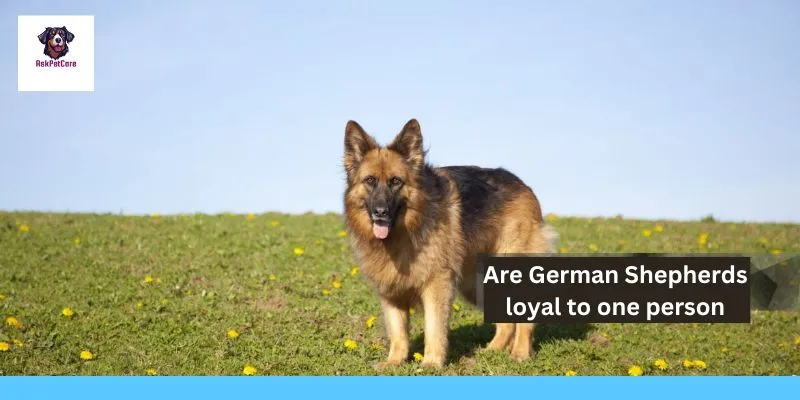
Here’s the information presented in a simple table format:
| Signs of Loyalty in Your German Shepherd | Description |
| Follows You Everywhere | Your German Shepherd likes to stay close to you and follows you around the house, showing their loyalty and desire to be near you. |
| Protective Behavior | They exhibit protective instincts, such as barking or standing guard, to keep you and your family safe, demonstrating their loyalty and devotion. |
| Excitement When You Return Home | Your dog greets you enthusiastically with a wagging tail and affectionate behavior, showing their happiness and loyalty upon your return. |
| Cuddling and Leaning | They seek physical closeness by leaning against you or snuggling up to you, expressing their loyalty and affection through comforting gestures. |
| Loyal Obedience | Your German Shepherd listens to your commands and obeys them willingly, demonstrating their respect and loyalty towards you as their leader. |
| Protects Family Members | They extend their protective instincts to other family members, showing loyalty and devotion to the entire household’s safety and well-being. |
| Alertness | Always vigilant, your German Shepherd remains alert to potential threats, demonstrating their loyalty and dedication to protecting you and your home. |
| Desire to Please You | They strive to make you happy and earn your approval, eagerly responding to your praise and affection as a way to demonstrate their loyalty and devotion. |
| Sensitive to Your Emotions | Your dog can sense your emotions and offer comfort and support when you’re feeling down or upset, showing their loyalty and empathy towards you. |
| Strong Bond | You share a deep, unbreakable bond with your German Shepherd based on mutual trust, understanding, and unconditional love, which is the ultimate sign of their loyalty. |
- Understanding Your Dog’s Unique Way of Expressing Affection
Every German Shepherd is different, and they have their ways of showing affection. Some may be more cuddly and affectionate, while others show their loyalty through protective instincts or playful behavior. It’s essential to pay attention to your dog’s individual personality and the ways they express their love and loyalty to you.
- Strengthening the Bond Through Mutual Trust and Communication
Building a strong bond with your German Shepherd is a two-way street. Here’s how you can strengthen the bond through mutual trust and communication:
- Spend quality time together: Engage in activities you both enjoy, such as playing, training, or going for walks.
- Be consistent and patient: Use positive reinforcement training methods and be patient as you build trust and understanding with your dog.
- Listen to your dog: Pay attention to their body language and vocalizations to understand how they’re feeling and what they need.
- Communicate clearly: Use consistent commands and cues to communicate with your German Shepherd effectively.
- Show love and affection: Give your dog plenty of love, attention, and affection to let them know they’re a valued and cherished member of your family.
By fostering mutual trust and open communication, you’ll strengthen the bond with your German shepherd and nurture their loyalty towards you.
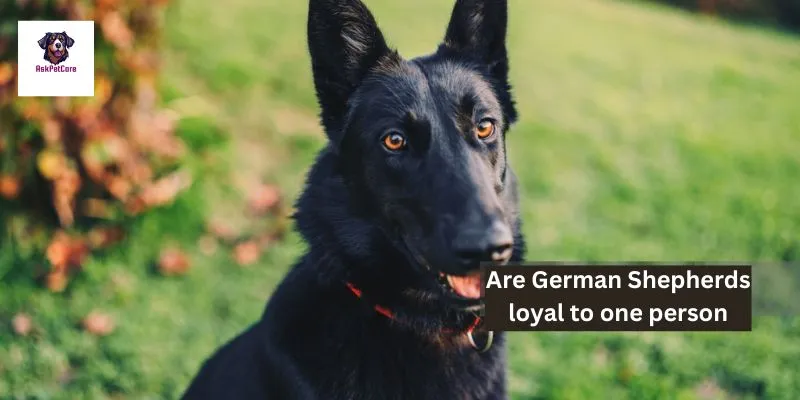
Are German Shepherds attached to one person?
German Shepherds are known for forming strong bonds with their owners, but whether they become attached to only one person can vary. While some German Shepherds may show a preference for one family member, many are capable of forming attachments to multiple people in their household. Their attachment often depends on their personality, experiences, and the amount of time spent with each family member. Overall, German Shepherds are capable of developing deep bonds with all members of their family.
Do German Shepherds only listen to one owner?
German Shepherds are intelligent and trainable dogs that can listen and respond to multiple people, not just one owner. While they may have a primary caregiver they’re particularly close to, they can learn to obey commands from other family members as well. Training, consistency, and positive reinforcement play crucial roles in teaching German Shepherds to follow commands from various individuals. With proper training and socialization, they can become obedient and responsive to all members of their household.
Are German Shepherds loyal to their owners?
Yes, German Shepherds are known for their loyalty to their owners. They are devoted and protective companions who form strong emotional bonds with their human family members. German Shepherds often display their loyalty through various behaviors, such as following their owners around, protecting them from perceived threats, and displaying affectionate gestures. Their loyalty is a combination of their innate temperament, their upbringing, and the quality of their relationship with their owners.
Do German Shepherds care about their owners?
German Shepherds care deeply about their owners. They are sensitive animals that can pick up on their owners’ emotions and respond accordingly. German Shepherds often seek physical closeness, offer comfort during times of distress, and show affection towards their owners. They form strong emotional connections and genuinely care about the well-being and happiness of their human companions. The bond between a German Shepherd and their owner is built on trust, mutual respect, and love, making them loyal and devoted companions.
I hope you will thoroughly understand “Are German Shepherds loyal to one person” Still any quarry contact me.
Here are some reference books that are considered authoritative on the topic of dog care, including nail care:
- “The Complete Dog Owner’s Manual” by Dr. Bruce Fogle
- “The Ultimate Guide to Dog Care: Everything You Need to Know to Keep Your Dog Happy and Healthy” by Amy Marder and Andrew Luescher
